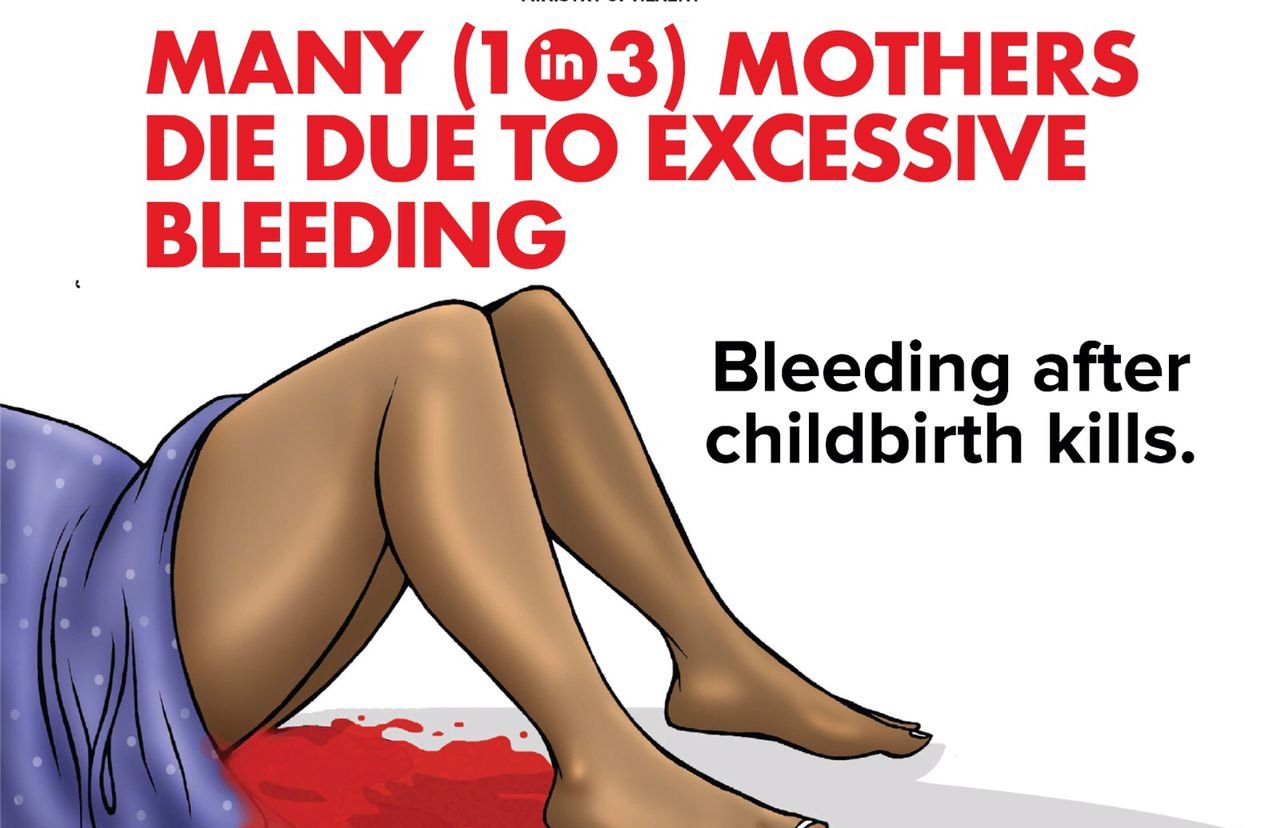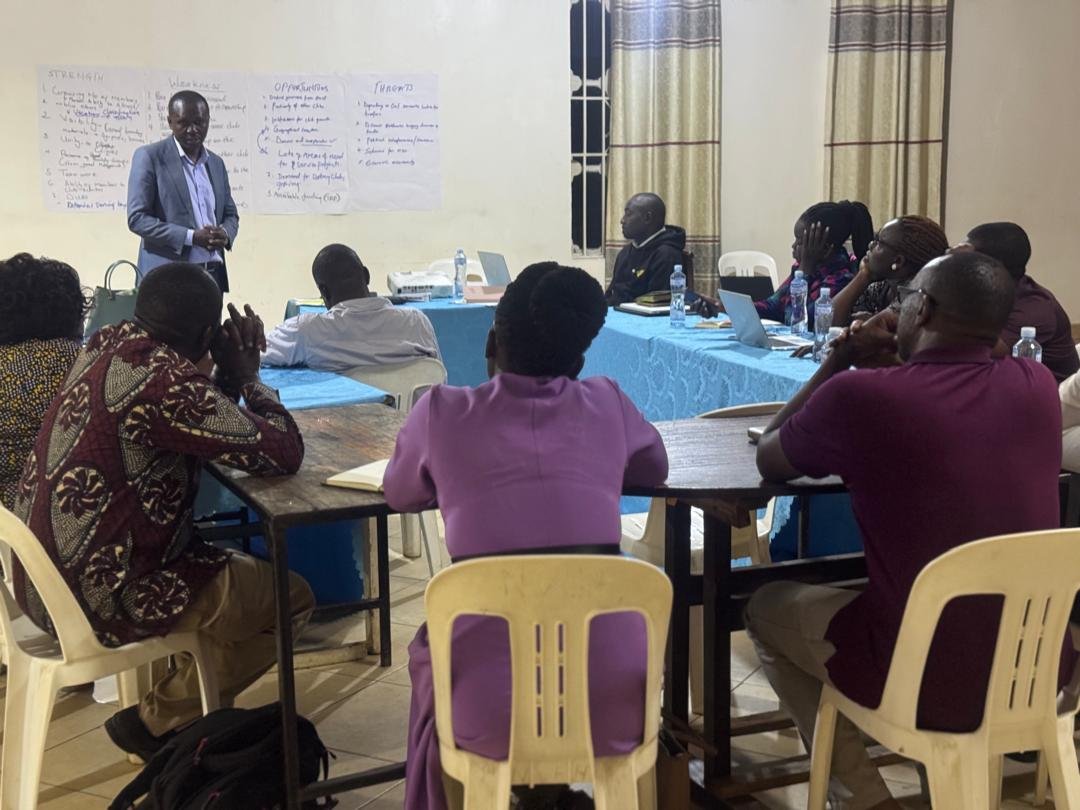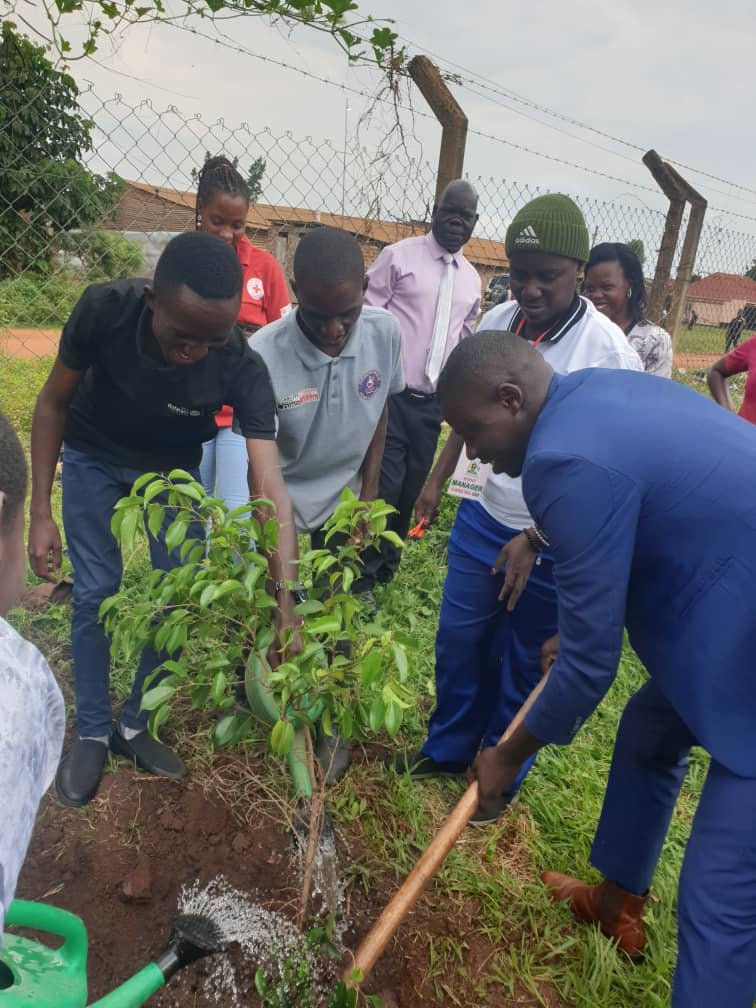
Ending the Silent Emergency, Rotary Club of Iganga Rallies Against Maternal Deaths from Postpartum Hemorrhage
On July 15, 2025, during its weekly fellowship, the Rotary Club of Iganga held a powerful and data-driven session that brought attention to one of the most preventable yet persistent causes of maternal mortality in Uganda and around the world, postpartum hemorrhage (PPH). The session, led by Dr. Pontian Kiwanuka, obstetrician at Iganga General Hospital, and Sr. Christine Muganzi, a Midwife and in-charge of maternity at the same facility, sparked a passionate call to action among Rotarians and guests.
The Unseen Toll, When Childbirth Turns Tragic
Each year, the World Health Organization estimates that 14 million women experience postpartum hemorrhage, with over 70,000 losing their lives to this preventable condition. In Uganda, PPH is the leading cause of maternal mortality, contributing to 45 percent of all maternal deaths. In the Busoga sub-region, where Iganga is located, the situation is even more severe, with PPH contributing to 61 percent of maternal deaths.
According to the MoH Annual Health Sector Performance Report 2023/24 – Health Management Information System (HMIS 105), a total of 1,222 health facility-based maternal deaths were reported across Uganda in the financial year 2023/2024. Of these, 95.4% were formally notified and 94.8% were reviewed, an improvement from 94.1% in the previous year. Among the reviewed cases, obstetric hemorrhage remained the leading cause of maternal death, accounting for 45% of all deaths. These figures are more than statistics, they represent mothers lost, families broken, and communities grieving futures that could have been saved.
Understanding Why Mothers Continue to Die
The presenters outlined the problem using the well-known Three Delay Model:
- Delay in deciding to seek care, which affects over 56 percent of maternal deaths in Busoga, often due to low health literacy, cultural influences, and past negative experiences with the health system.
- Delay in reaching care, which affects 39 percent of the cases, caused by lack of access to transport and poor infrastructure.
- Delay in receiving quality care at the health facility, which contributes to 70 percent of maternal deaths in Busoga, largely due to shortages in skilled personnel, inadequate supplies, and system inefficiencies.
These delays show that the problem is not just medical, it is social, economic, and systemic.
Rotary’s Call to Action, A Community-Driven Approach
The presentation aligned closely with several of Rotary International’s Areas of Focus:
- Maternal and Child Health: Rotary clubs around the world work to reduce maternal and infant mortality by improving access to essential medical services. At Iganga Hospital, this involves strengthening antenatal care, providing essential supplies such as uterotonics, and scaling up use of the Non-Pneumatic Anti-Shock Garment (NASG), which can reduce deaths from bleeding by up to 60 percent.
- Disease Prevention and Treatment: With blood supply and skilled surgical care being critical in managing PPH, Rotary Iganga is promoting blood donation drives, investing in skills development, and advocating for essential medicine availability.
- Basic Education and Literacy: The presentation emphasized that improving health literacy in communities is vital. Women need to understand the signs of complications and when to seek care. Outreach and education can significantly reduce the first delay.
- Economic and Community Development: Financial hardship often prevents timely health-seeking. Rotary’s community empowerment efforts can help reduce such barriers, making maternal healthcare more accessible and equitable.
What Happens Next
In response to this crisis, Iganga Hospital has declared August as PPH Awareness Month. Planned activities include a march through the town, community sensitization campaigns, and health worker training sessions. The Rotary Club of Iganga is mobilizing partners and stakeholders to support the hospital in improving maternal care.
But the work cannot stop there. Improving maternal health requires commitment from multiple sectors, including government, civil society, health institutions, and development partners. Rotary is uniquely positioned to connect these dots and drive sustainable change.
Why This Matters
When a mother dies while giving life, the effects ripple through her family, her community, and generations to come. Preventing maternal deaths is not just a health priority, it is a reflection of our values and our collective responsibility.
Rotary Club of Iganga’s initiative is a reminder that meaningful change often begins at the local level. It is about neighbors helping neighbors, professionals stepping beyond their duties, and leaders rising to the occasion. By addressing postpartum hemorrhage with such resolve, they are helping to build a healthier, stronger future for all.
Article By: Tatumwa Desmond Benjamin



